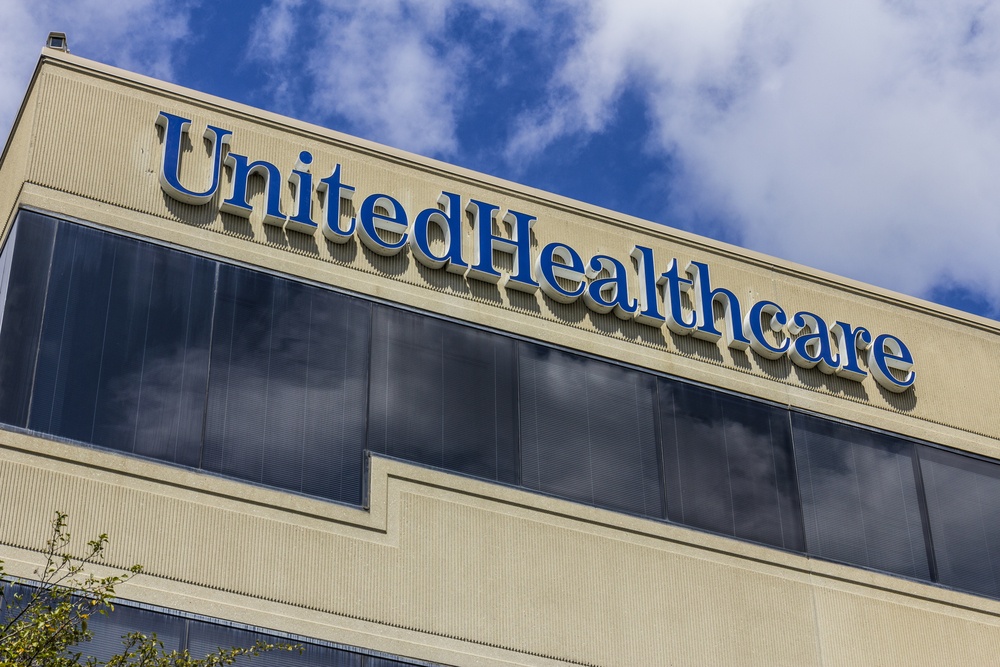



Get new exclusive access to healthcare business reports & breaking news




The 2019 report from Brand Finance on the top 25 healthcare brands was just published on May 22nd. UnitedHealthcare overwhelmed its competitors again this year and kept its first place ranking as the most valuable healthcare brand.
In the research to create this report, Brand Finance follows a seven-step process:
Based on this process, UnitedHealthcare has placed first again this year. They boast a brand value of 31 billion dollars. Not only does it rank far above the second place competitor, but it also received the title of the fastest growing healthcare brand. It is clear that UnitedHealthcare is not going to take a break because of its continued success.
UnitedHealthcare did everything but coast on its success from last year’s report. In 2018, the brand reported a valuation of $18,614 million. This year, the report reflected a 64.3% increase, valuing UnitedHealthcare at $30,577 million.
UnitedHealthcare’s ongoing brand dominance is largely attributed to its ability to connect with consumers. Brands that build loyalty and create an emotional connection with their audience are typically more successful than those that do not.
One popular instance of this tactic is UnitedHealthcare’s reward program that gives eligible plan participants Apple Watches to track their daily step count. The Apple Watch can be used with the digital wellness program UnitedHealthcare Motion. In the program, participants receive cash bonuses up to $1,000 per year for meeting their walking goals.
If participants already own an Apple Watch, they can connect it to the program and earn the rewards in cash. If they do not own an Apple Watch, they can be sent one after covering only the cost of shipping and tax. Once it is connected, they can put program earnings toward the cost of the device. Many participants are able to pay for the watch within six months.
Another way that UnitedHealthcare builds an emotional connection and brand loyalty is through their volunteer program with Do Good. Live Well. They started this organization to help decrease hunger and obesity.
Employees of UnitedHealthcare have volunteered with this group since 2009. An estimated 80,000 employees across the country currently volunteer with this program to participate in events like delivering food to home-bound seniors, donating plants or vertical gardens, helping to build fitness facilities for students, and much more.
When potential customers see a brand giving back in real, tangible ways, they start to see the brand less as a corporation and more as a group of individuals who care about the wellbeing of their community. Customers will be more likely to support a brand that shares their values. Doing so will allow the customer to feel like they are also donating to a cause that they believe in when they give a brand their money.
Recently, UnitedHealthcare has also entered into a partnership with the American Medical Association. Together they will study the “social determinants of health” with the goal of improving access to the care that people need. This is only one of several new initiatives that UnitedHealthcare has implemented in 2019. These initiatives are sure to positively affect their brand image and yield great numbers for next year.
Zooming out from UnitedHealthcare, the valuations for the top ten brands are as follows:
Even though the second and third place brands increased revenues by 34.5% and 51.1%, respectively, neither brand came close to first place. Anthem, ranked second, is valued at less than half the of UnitedHealthcare, reporting $13,559 million. Anthem may see a larger increase next year as it starts it pharmacy benefits manager IngenioRx.
The launch of this pharmacy benefits manager is reflective of the industry consolidation that a lot of brands are pursuing. Smaller brands are looking to make purchases or be bought out to try and make up ground between them and the first place slot. According to Healthcare Dive, Cigna purchased Express Scripts and CVS bought out Aetna in the last year. In Brand Finance’s report, CEO Alex Haigh says that this is what these brands need to do to become more competitive with UnitedHealthcare.
When healthcare brands partner with care providers, it allows these brands to differentiate themselves from their competitors. Partnering with specific providers, even non-traditional ones like Amazon, creates more opportunities for targeted marketing and expanded audience reach.
Another thing made apparent in this report is that the healthcare industry is dominated by companies in the United States. Nine of the top ten brands are based in the U.S. The only exception is Fresenius, which is based out of Germany. Fresenius is also the only non-U.S. brand that even ranked in the top 25 healthcare brands.
Lastly, it is important to note that this year was not a success for all of the top 25 brands listed in this report. Tenet Healthcare experienced the most significant drop in value, down 24% from last year. While industry consolidation becomes more popular among competitors, lower-ranking brands who are not partnering with care providers are sure to experience a decrease in revenue.
In the next year, you can expect to see more healthcare brands partnering with care providers to provide a beginning-to-end experience in the healthcare process. It’ll be interesting to see how this will affect next years numbers and rankings.